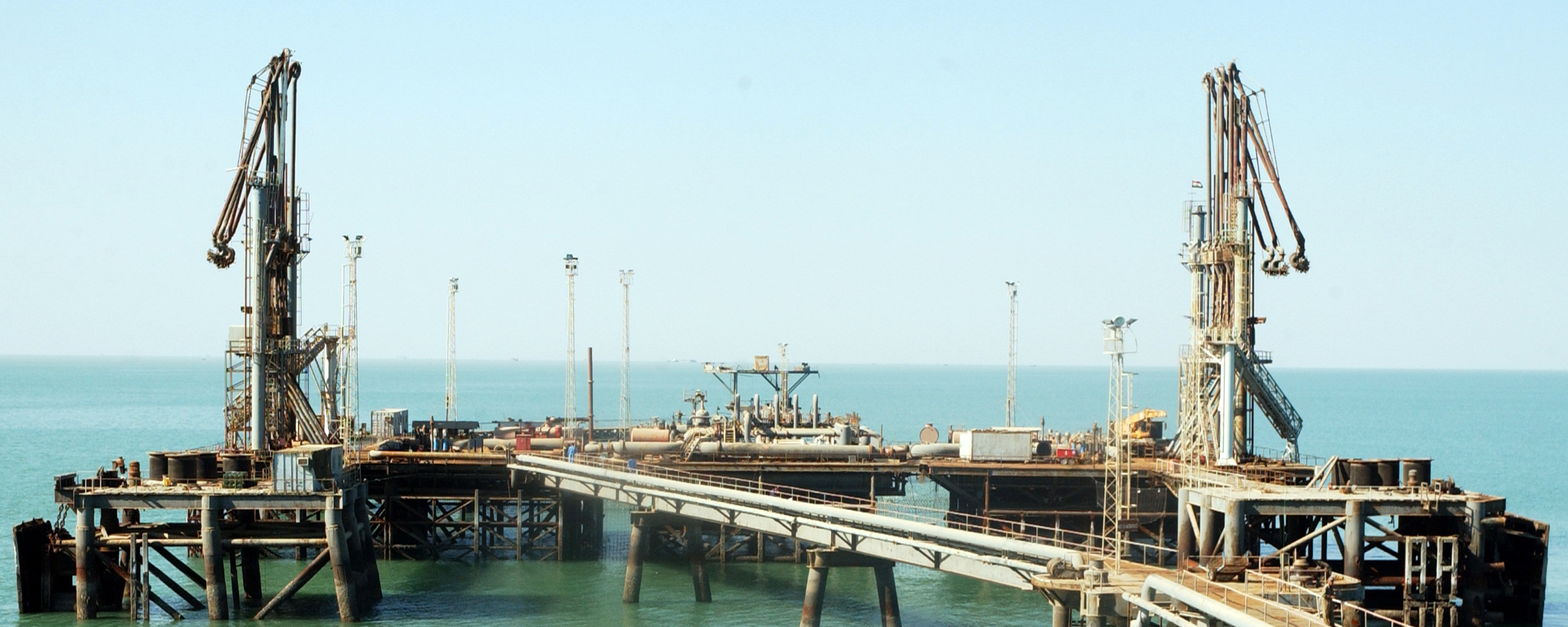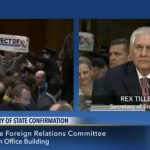Trump's Vision for Iraq: "To the Victor Belong the Spoils"
Of all the absurd statements from the campaign trail that you might have expected President Trump to walk back after taking the oath of office, the one about taking Iraq’s oil might well have topped the list. But to the contrary, the President seemingly used his first speech following his inauguration to double down on what we’d hoped was mere bluster. To an audience of roughly 400 C.I.A. employees, President Trump said the following verbatim:
The old expression: “to the victor belong the spoils” – you remember? You always used to say “keep the oil.” I wasn’t a fan of Iraq. I didn’t want to go into Iraq. But I will tell you. When we were in, we got out wrong. And I always said: “In addition to that, keep the oil.” Now I said it for economic reasons, but if you think about, Mike, if we kept the oil we would probably wouldn’t have ISIS, because that’s where they made their money in the first place. So we should have kept the oil. But okay. Maybe we’ll have another chance.
When asked at a press conference if Trump intends to send more American troops into Iraq to take Iraq’s oil, the new Press Secretary Sean Spicer said, “I’m not going to talk about what we may or may not do.”
Like some members of the press, Iraqis seemed to take Trump at his word. Kareem Kashekh, a photographer working in the Iraqi armed forces, said, “There’s no way Trump could take the oil unless he launched a new military front and it [would] be a new world war.” Dawoud Ali, who lives in Baghdad and is a fighter for one of the Shiite militias battling ISIS, said, “He cannot do it. He cannot succeed… Of course I would fight the Americans if they came for the oil.” Today even the Iraqi Prime Minister Haidar al-Abadi had to weigh in to say that Iraq’s oil belongs to Iraqis.
In November 2015, Trump was already thinking about how his policies in Iraq might benefit American business interests:
They have some [oil] in Syria, some in Iraq. I would bomb the s— out of ’em. I would just bomb those suckers. That’s right. I’d blow up the pipes… I’d blow up every single inch. There would be nothing left. And you know what, you’ll get Exxon to come in there and in two months, you ever see these guys, how good they are, the great oil companies? They’ll rebuild that sucker, brand new — it’ll be beautiful.
Fast-forward 14 months and President Trump is telling 400 C.I.A. employees, “maybe we’ll have another chance” to take Iraq’s oil, while former ExxonMobil CEO Rex Tillerson is on the verge of being confirmed as the next Secretary of State.
While Trump’s comments about taking Iraq’s oil stretch at least as far back as 2011, Rex Tillerson has been an oil man for most of his adult life, working for ExxonMobil since 1975. Tillerson became Senior Vice President at Exxon in 2001, at the beginning of a new era in American foreign policy that proved to be a major boon for Exxon. In a scathing expose of Exxon’s deplorable conduct during Tillerson’s time as a high ranking executive at Exxon, Antonia Juhasz addressed Exxon’s role in planning aspects of the 2003 invasion of Iraq:
Prior to the March 2003 invasion, Iraq’s domestic oil industry was fully nationalized and closed to Western oil companies. Within six years, it was largely privatized and utterly dominated by foreign firms, including Exxon Mobil…
Exxon Mobil joined with other Western oil giants to have a direct hand in this long-desired outcome. The company participated in the Cheney Energy Task Force, which first met just 10 days into the new administration. Its work included reviewing “operational policies” toward Iraq and “actions regarding the capture of new and existing oil and gas fields.” In its final report in May 2001, the task force argued that Middle Eastern countries should be urged “to open up areas of their energy sectors to foreign investment.” This is precisely what was achieved in Iraq.
Exxon Mobil met with Cheney’s staff in January 2003, two months before the invasion, to discuss plans for Iraq’s postwar industry, while then-CEO Lee Raymond had many private meetings with longtime friend Dick Cheney. For the next decade, former and current executives of Western oil companies, including Exxon Mobil, acted first as administrators of Iraq’s oil ministry and then as “advisers” to the Iraqi government.
In other words, should Trump and Tillerson ever move forward with any plan to take Middle East oil, it wouldn’t be the first time Tillerson prioritized corporate profits over stability in the region. Actually, it wouldn’t be the second time either. In 2011 under Tillerson’s leadership, Exxon signed a deal with the Kurdish government in northern Iraq that undermined American diplomats’ efforts to facilitate an oil sharing agreement between Iraq’s central government and various other factions. As the Washington Post described it, the move “defied U.S. foreign policy aims, placing the company’s [Exxon’s] financial interests above the American goal of creating a stable, cohesive Iraq.”
Exactly how the Trump administration may or may not go about grabbing more Middle East oil is not entirely clear. What is clear is that the taking of any country’s natural resources runs counter to basic principles of international law and any justifiable foreign policy. What’s also clear is that implementing any plan to effectively siphon more Middle East oil would have far reaching consequences, not the least of which would be undermining the economic and political stability of a region still engulfed in violence born from a war the Bush administration lied its way into, for… what was it again? Weapons of mass destruction? Freedom and democracy? Oh yeah… Oil.






